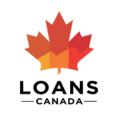Business Loans in Canada
When looking to grow your business, finding the right financing can be crucial. In Canada, there are numerous options for business loans, each tailored to different needs. Whether you are in Toronto, Vancouver, Montreal, or any other city in Canada, this guide will help you navigate through the various loan options available.
Types of Business Loans
Usage:
- Increasing working capital
- Opening a new location
- Paying wages
- Consolidating debt
- Covering marketing costs
- Renovating
- Expanding e-commerce efforts
2. Commercial Mortgages
A commercial mortgage is a loan taken out to buy or expand commercial property. The property itself is used as collateral. These loans can range from five to 30 years, with the term often differing from the amortization period.
Usage:
- Buying land or property for commercial use
- Expanding existing property
3. Business Line of Credit
A business line of credit is a revolving loan that can be secured or unsecured. It works similarly to a credit card but typically offers lower interest rates and higher credit limits.
Usage:
- Financing short-term needs
- Day-to-day operations
- Paying suppliers
- Managing cash flow problems
4. Equipment Financing
Equipment financing is used to acquire equipment necessary for running your business. The lender may require a lien on the equipment as collateral.
Usage:
- Purchasing machinery, computers, furniture, vehicles, or construction equipment
Specialized Loan Options
1. SBA Loans
The Small Business Administration (SBA) loans are designed to support small businesses in obtaining necessary funds. These loans are partially guaranteed by the government, making them more accessible to small business owners.
Usage:
- Start-up business loans
- Business expansion
- Equipment purchases
2. Canadian Small Business Financing Program (CSBFP)
This program, developed by the Government of Canada, helps small businesses and start-ups that cannot access traditional financing. It’s offered through participating banks and can cover various business expenses.
Usage:
- Buying or renovating commercial property
- Purchasing or upgrading equipment
- Improving leased property
Key Considerations for Business Loans
When choosing the right financing option, it’s important to consider the following:
1. Loan Purpose
Determine what you need the loan for: working capital, expansion, equipment, etc. This will help you choose the right type of loan.
2. Loan Term
Short-term loans are typically used for immediate needs and have higher payments but lower overall interest costs. Long-term loans have lower payments but higher overall interest costs.

3. Interest Rates and Fees
Compare interest rates and fees from different lenders to find the most cost-effective option. Lower interest rates are generally preferable, but be aware of any additional fees that may apply.
4. Cash Flow
Ensure your business has sufficient cash flow to make timely loan repayments. Poor cash flow management can lead to financial difficulties and affect your ability to repay the loan.
Examples of Loan Applications
Toronto: A tech start-up in Toronto might use a start-up business loan to fund the purchase of high-end computers and software necessary for product development.
Vancouver: A construction company in Vancouver might opt for equipment financing to acquire new machinery for a large project.
Montreal: A retail store in Montreal might use a business line of credit to manage seasonal inventory purchases and ensure smooth operations during peak seasons.
Conclusion
Securing the right business loan is essential for growth and stability. By carefully considering your business needs and financial situation, you can find the ideal financing solution to help your business thrive.





Disclaimer
This is just educational content ,not financial advice. Top Loan is an affiliate partner. Verify all information with your lender and consult your financial advisor before making decisions. For any inquiries, please contact us at Info@toploan.ca.






